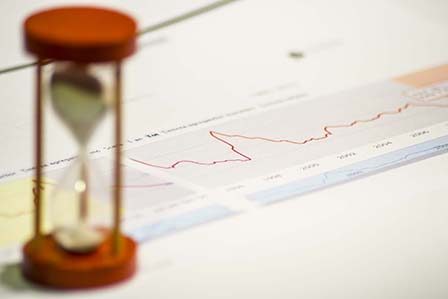In December 2017, the annual inflation rate constituted 7.3%, being similar to that of the previous month. The dynamics was determined by the nature of the supply factors, by the effect of a low basic period in 2016 and by the adjustment of certain tariffs to the utility services.
The biggest contribution to the annual inflation rate (3.8 pp) was recorded for food products, similar to the previous month. The core inflation contribution (1.7 pp) to the annual inflation rate trajectory was by 0.2 pp lower than in November 2017. The impact of fuel prices was by 0.2 percentage points below the level of the previous month and constituted 0.3 percentage points, while for regulated services it remained at the level of the previous month (1.4 pp).
The monthly inflation rate registered a level of 0.5%, mainly being driven by the 0.9% rise in food prices. Prices for non-food goods and services registered a modest evolution, having increased by 0.4% and 0.1%, respectively.
In the reference month, the annual rate of core inflation recorded the value of 5.5%, being by 0.5 pp higher than in the previous month.
At the same time, the monthly core inflation rate in December constituted 0.5%. The most significant price increases were registered for subcomponents: "cigarettes", "daily household maintenance", "education and training", "furniture" and "apparel".
The increase in food prices by 0.9% compared to November 2017 was mainly due to the rise in prices for "eggs" (5.0%), "fresh vegetables" (4.7%), "potatoes" (2.0%), "fresh fruit" (1.2%), "milk and dairy products" (1.0%) and "fat" (0.5%). Excluding the seasonal factor, food prices rose by 0.4 percent. The rise in prices for meat, meat products and canned meat has resulted from the reduction in supply as a result of the ban imposed on meat imports from Ukraine.
The annual growth rate of food prices constituted 9.7%, being by 0.1 pp higher than in November 2017 and by 6.9 pp higher than in December 2016.
In December 2017, oil prices rose by 0.3% compared to the previous month. This development was mainly influenced by the rise in 'fuel' prices by 0.7%, generating a contribution of 0.4 pp. The fuel price dynamics was the result of prices increases for gasoline and diesel fuel in line with the oil prices trend on the international market. Prices for “bottled gas” dropped by 1.0%. At the same time, prices for "firewood", "coal" and "liquid fuel" remained at the level of the November 2017.
The annual growth rate of fuel prices in December 2017 constituted 5.1%, being lower by 2.3 pp compared to the previous month and by 3.5 pp higher than the price recorded in December 2016.
In the reference month, prices for regulated services and products recorded a minor decrease (-0.05%), being determined by a 0.2% decrease in drug prices and by 0.1% in air transport. Prices on international railways services increased by 0.6%.
The annual growth rate of regulated products and services constituted 6.1%, lower by 0.1 pp compared to the previous month and by 7.2 pp higher than in December 2016.
To note that the evolution of inflation in the fourth quarter of 2017 is in line with the quarterly forecast published in the Inflation Report of November 2017. Further, a deceleration of the level of inflation is expected throughout the year 2018.
The NBM will monitor the domestic and international economic developments, and will use the operational framework specific for the inflation targeting strategy in order to maintain the medium-term price stability





















